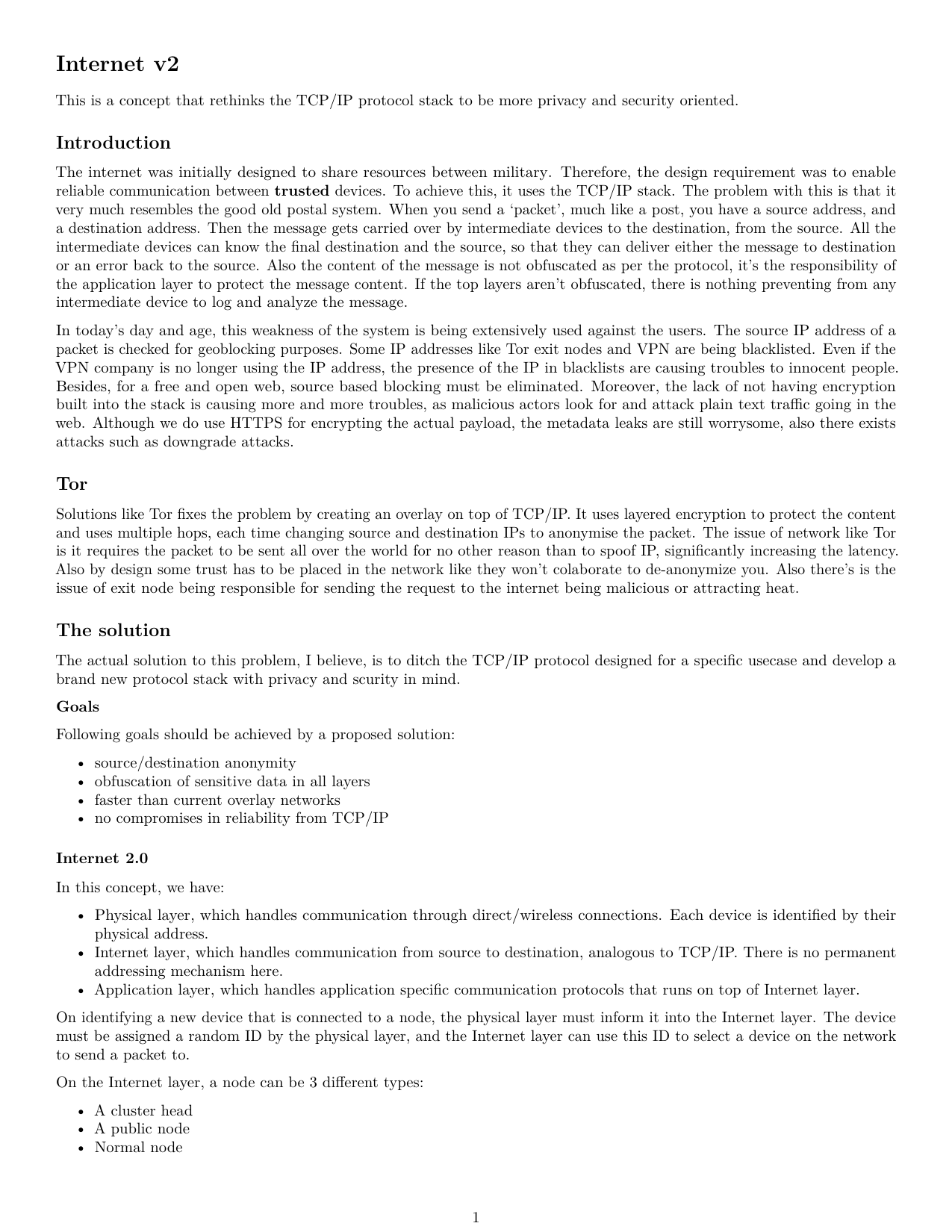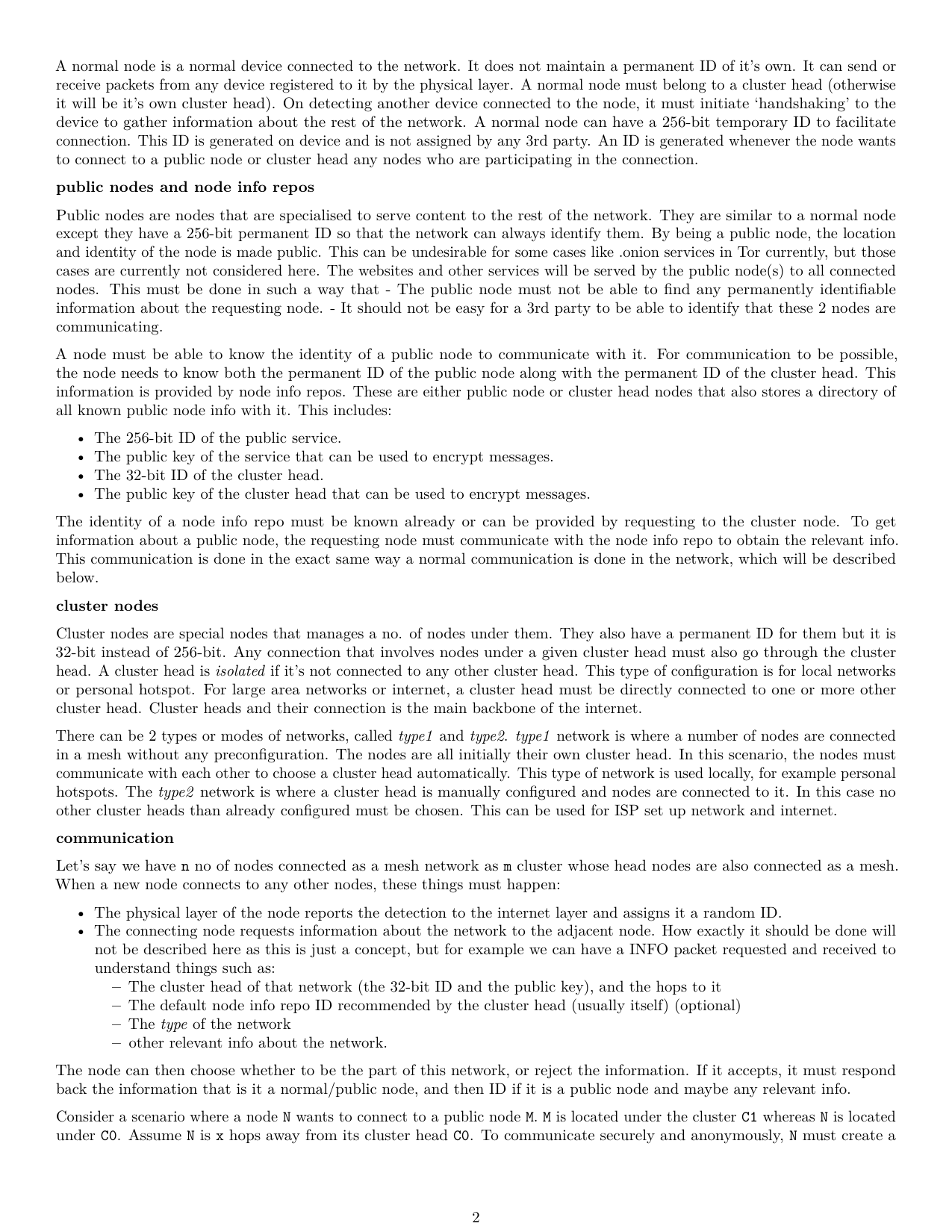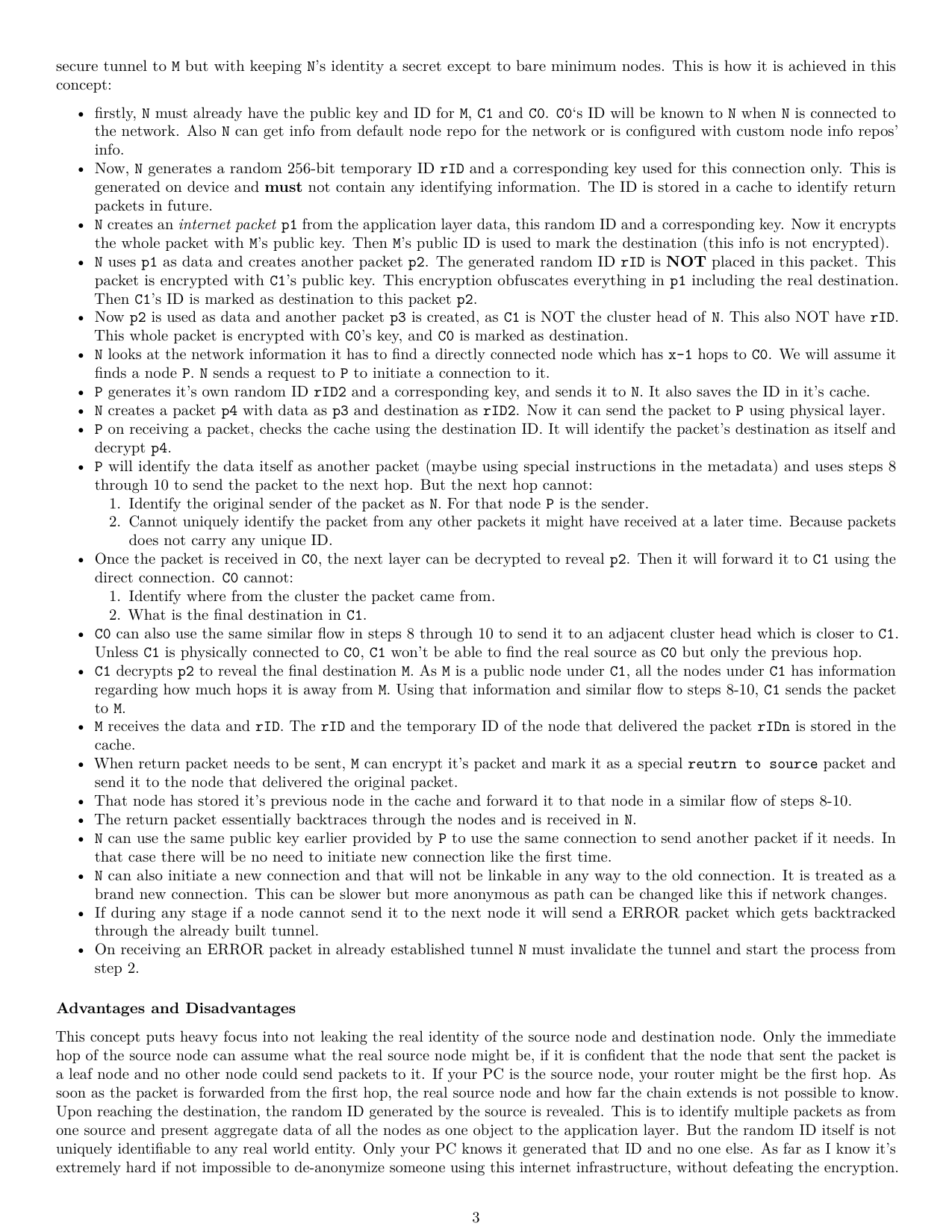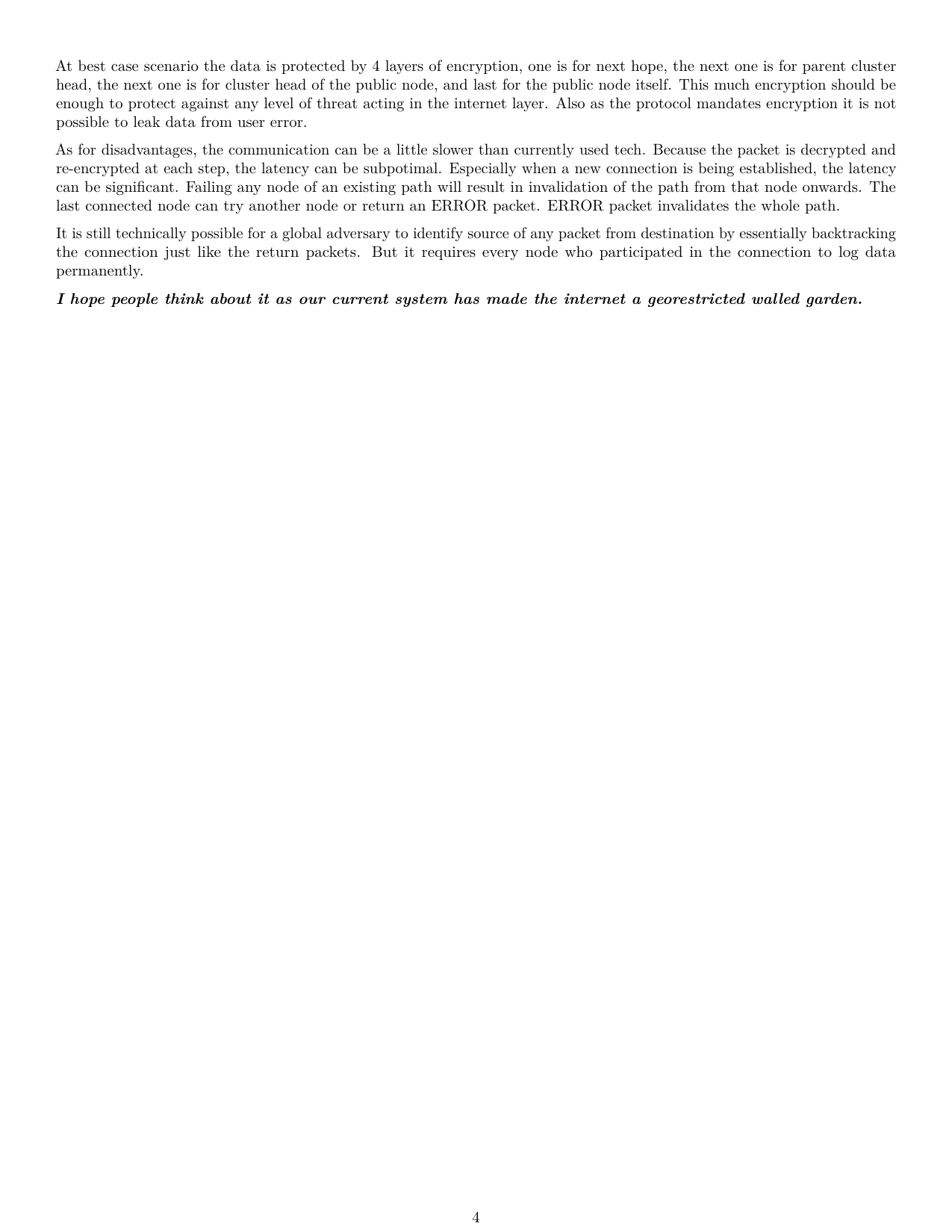- cross-posted to:
- programming@beehaw.org
- cross-posted to:
- programming@beehaw.org
please read the attached doc and give your feedback…
That’s fine and all, but if TCP/IP is no longer in play, how would a network like this even get started? The ISPs won’t support it and there would be no way to connect nodes other than go to back to sending tones over phone lines or attempt some type of mesh network.
By the way, Internet 2.0 already exists: https://en.wikipedia.org/wiki/Internet2
Yeah, I agree. I wouldn’t say it’s impossible, but it would be a very steep uphill battle. What we have now works great and we shockingly got the rest of the world to agree on it. The current OSI model provides a lovely blank canvas for all sorts of communication. Can it be improved? What system can’t? But from the days of ARPAnet to now was a long journey and this new Internet would have to start at the beginning and come into being like the Internet we all use today. I’m not interested in using dial-up again or waiting years to get “new” broadband. Too much investment is needed for such little reward.
Also, I feel like the author of this idea needs to brush up in their Internet history because it can’t be called Internet v2 for the reason you said.
This is a concept, frankly I don’t think our govts or corpos will have any interest in this 😂 but we need to think privacy at a network level
I get it if the goal is to explore ideas, but any serious proposal that starts with “get rid of TCP/IP” isn’t a serious proposal because that stipulation alone makes it dead on arrival. Unless you could convince major internet backbone providers to adopt a complete replacement because of fantastically convincing reasons, dropping TCP/IP simply isn’t going to happen. Case in point: we’ve had a pretty damn good reason to migrate from IPv4 to IPv6 for decades now and we all know how well that’s going.
maybe not today or tomorrow, but having an idea floating around helps people consider it in the far future if an architectural change becomes necessary
Download is failing. Can you give a summary?
Here you go:




If anyone is wondering how I did it, you need
pandocandpoppler-utils:# Convert Markdown to PDF $ pandoc -s -V geometry:margin=0.5in -o internetv2.pdf internetv2.md # Convert PDF to PNG $ pdftoppm -png internetv2.pdf internetv2
If I’m understanding this right, it would require every router to effectively be a proxy… it’s tcp but with every packet masqueraded.
Honestly, hard pass. Knowing the source IP (i.e. where things are actually destined) is useful information for network reliability and performance. It’s part of what makes the Internet so reliable, self healing, and snappy.
It’s also still important to be able to just say “no I don’t want anymore traffic from this machine.” IP bans can be used to protect more expensive processing power from misbehaving systems. I don’t want to block an entire state (or literally everyone) because one machine was misbehaving (if you can only see one node back, you can only block that one node which is now responsible for all traffic).
This wouldn’t even provide privacy from the kinds of folks (governments) that I’d assume you’re trying to protect from. They’d still be able to setup a surveillance network inside of ISPs to watch the exchange from A -> B -> C and back. The reason Tor works so well is it’s anarchy, anyone becomes an ISP node despite their status on the physical network. There becomes too much to backdoor and too much to watch (without spending billions or trillions to gain a majority share of the Tor nodes worldwide).
If I’m understanding this right, it would require every router to effectively be a proxy
EXACTLY
They’d still be able to setup a surveillance network inside of ISPs to watch the exchange from A -> B -> C
It will be super hard as the packets are not easily uniquely identifiable, and basically impossible if multiple countries are involved. It’s the same like trying to take down/block Tor.





